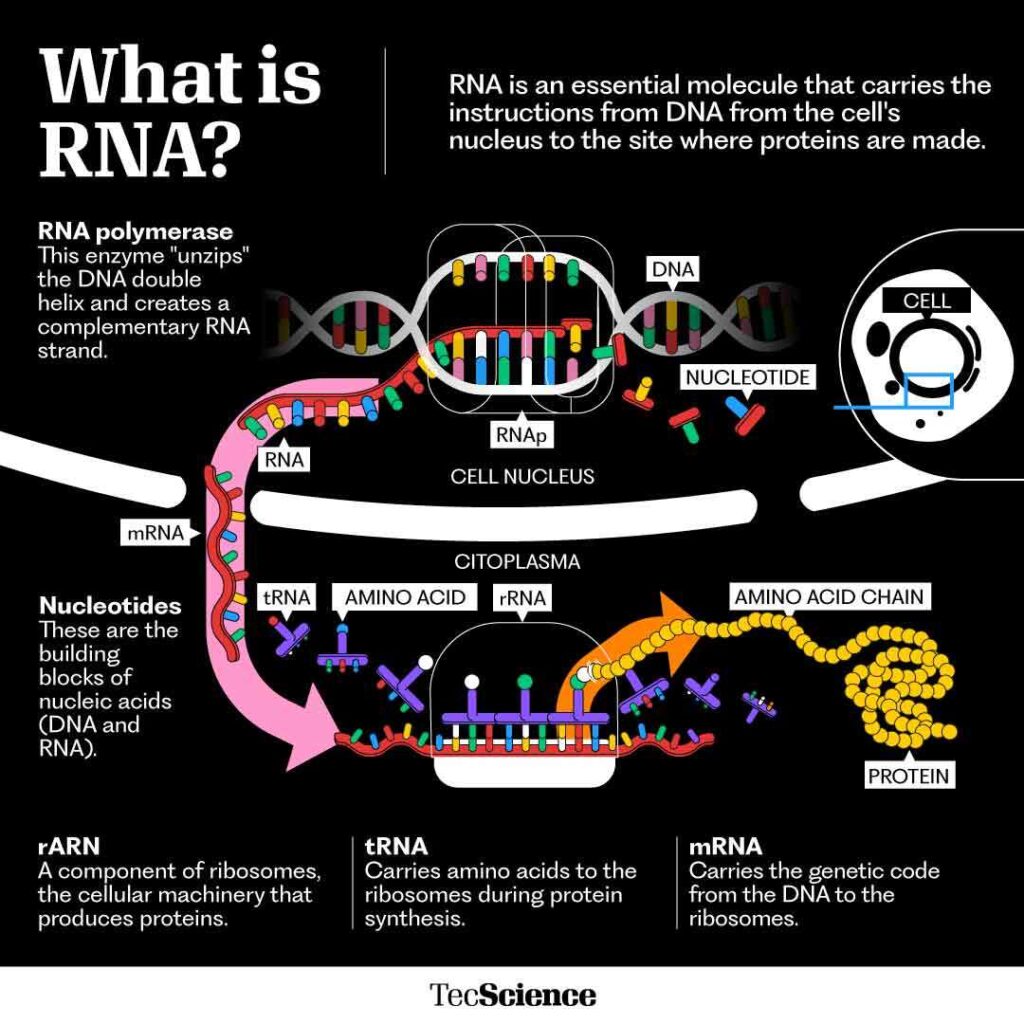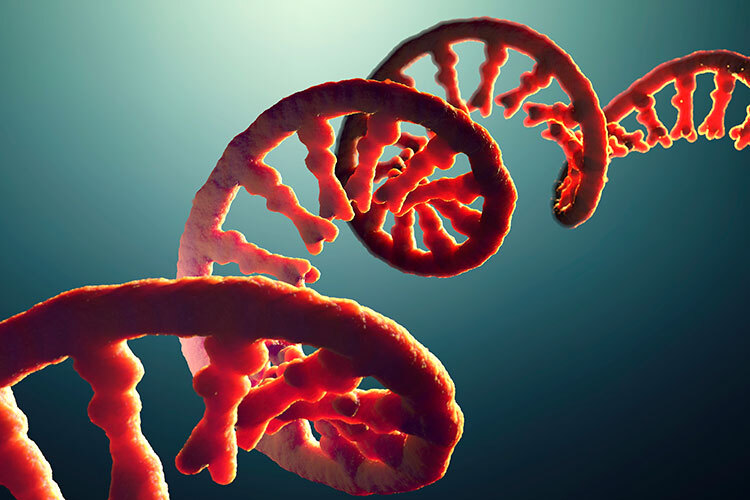For a long time, genetic research has focused on DNA, the molecule that stores the information needed to produce proteins. However, DNA genes can only be expressed through a series of steps involving ribonucleic acid (RNA) in various forms. This is why research is now turning its attention to this crucial molecule.

Illustration: Oldemar González / TecScience
RNA Studies
RNA is a versatile molecule that also contains genetic information. It’s similar to DNA, as both comprise nucleotides or chemical units that link together. The main difference is that DNA typically has two intertwined strands, whereas RNA usually has just one.
This is partly because RNA has only a single strand, and it can perform various functions within the cell.
DNA, containing all of an organism’s genetic information, is subjected to fewer processes that might alter this information and never leaves the cell nucleus. Various types of RNA enable this information to be copied, transported out of the nucleus, and converted into proteins in protein synthesis.
But RNA’s role doesn’t stop there. For instance, it can form cellular structures and act as a catalyst in chemical reactions. Additionally, it can regulate gene expression, meaning it can turn genes on or off in response to environmental changes. In other words, studying RNA is essential to understand how DNA information is transformed into functional products like proteins, which allow cells to respond to their environment.
“A deeper understanding of RNA and its potential applications can advance our knowledge of living systems and have a profound impact on human health,” said Carolyn Hutter, director of the Division of Genome Sciences at the National Human Genome Research Institute, part of the National Institutes of Health (NIH), in a press release.
Beyond Vaccines
In 2023, the Nobel Prize in Medicine or Physiology was awarded to Katalin Karikó and Drew Weissman for discoveries that enabled the development of RNA vaccines against COVID-19.
Research is underway to see how RNA vaccines can be personalized to target cancerous tumors. Researchers are also exploring how RNA can detect diseases or serve as a treatment for various conditions.
Given RNA’s many roles in cells and potential applications, an international group of scientists is advocating for a Human RNome Project, which aims to identify, quantify, and map all human RNAs in healthy and diseased cells.
This project is even more ambitious than the Human Genome Project, which took 13 years to complete but, according to its website, “will revolutionize multiple fields, including therapeutics, diagnostics, food safety, biomanufacturing, and vaccine development.”
On June 24, the NIH and the National Science Foundation (NSF) announced a $15.4 million grant for RNA research over the next three years.















